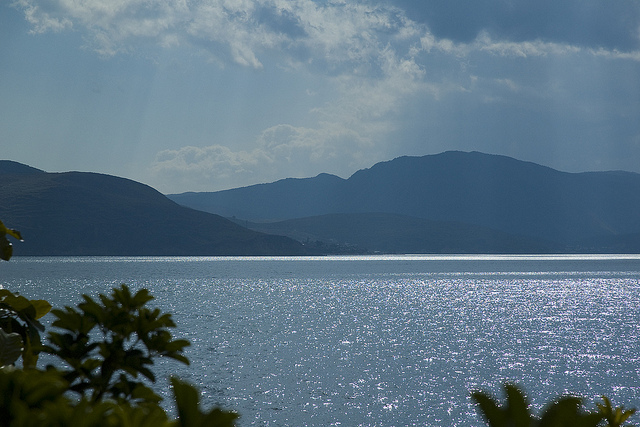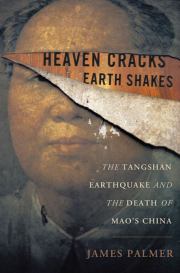I recently started reading Frank Dikköter’s book Mao’s Great Famine, The History of China’s Most Devastating Catastrophe, 1958-1962 and am about halfway through. Reading it is not a pleasant experience. Nothing about the Great Leap Forward makes for pleasant storytelling. You can feel the author’s rage on every page, even while his style remains calm and restrained. It is clear he sees the GLF not only as a man-made calamity, which it was, but one for which Mao deserves nearly all the blame. It is a crime that Dikkoter believes ranks with the Holocaust, one that Mao supported with full awareness of its consequences, and even with malice.
The other famous book on the GLF, Yang Jisheng’s Tombstone (discussed in an earlier post here) takes a more measured look at the nightmare years, and is not so quick to accuse Mao of intentionally and maliciously wreaking suffering on his people. Or so at least we are told in this superb book review by Xujun Eberlein, one of my favorite bloggers and someone I had the pleasure to meet in Chongqing a few years ago. Everyone who reads this blog will want to see this side-by-side comparison. She clearly sides with Yang Jisheng.
“Understanding the complexity of human behavior in times of catastrophe is one of the aims of the book,” Dikötter states, and he does a good job fulfilling that goal in terms of ordinary people. But when it comes to the behavior of Mao and his colleagues, he has a tendency for simplification and caricature. The Mao under his pen is simply one of history’s most sadistic tyrants; consideration is not given to the complexity of his behavior. The reader gets the impression that Mao knew about the famine all along, but either deliberately let people starve, or was indifferent to their fate. Dikötter’s indignation toward Mao is understandable, but this representation is neither factual nor insightful.
In contrast to Dikötter, Yang Jisheng, despite his sorrow and resentment over the catastrophe, does not let personal sentiment get in the way of factual reporting and serious exploration. Aptly casting Mao as “China’s last emperor,” Yang nonetheless provides a more complete portrait.
Mao’s policies were the main cause of the famine, and nothing can excuse him from that responsibility. But the catastrophe was not a deliberate act of mass murder like the Holocaust, as Dikötter suggests. Rather, it was the result of policy failures from a governance system based on the control of ideology and information. Culminating in the Great Leap Forward in 1958, the utopian policies, enthusiastically shaped and promoted by the entire leadership, were intended to bring about China’s high-speed development. They instead resulted in the collapse of the nation’s economic pillar: agriculture. The central government’s inflated production targets and export quota led to unreasonably high procurements of grain from the peasants, while local governments under political pressure responded with inflated grain production statistics. The two types of inflation fed each other to form a vicious cycle that exhausted agricultural capacity, while the backyard steelmaking that took workers away from the land further worsened the grain shortages. After the famine started, it was prolonged because bad news was blocked from feeding back to top policy makers. Mao, thus, went through a long period of delusion and denial before, in late 1960, making a partial concession: “I myself made mistakes, too; I must correct.”
So perhaps Mao’s saving grace is that when he actually did recognize the tragedy of his policies in 1961 he took steps to reverse them. Either way, epiphany or not, Mao must assume the lion’s share of the blame, especially considering how he purged anyone who dared question his revolutionary plan to modernize China. And he didn’t seem to learn from his mistakes. Only a few years later he would seek to rehabilitate himself by launching a new campaign, one that equaled the GLF in terms of insanity, cult worship and suffering.
Like the Holocaust, the GLF is a subject of endless fascination for me, making me wonder how men can surrender their critical faculties and their humanity. And no, I am not saying the GLF equals the Holocaust.I’m not say Mao has blood on his hands the way Hitler does. But both featured certain key ingredients: blind obedience and blind faith, an ideologically twisted leader who assumed cult status, and an unfathomable lack of compassion for the suffering.
After reading this remarkable review I’m keen to read Tombstone, though the fact that it’s 900 pages in two volumes might be beyond my stamina. It is set to be published later this year. Luckily, Xujun has broken the books down to at least give us a taste of both. Read the review, and tell me how two brilliant researchers/writers could come to such different conclusions.
Update: Please note that Xujun’s excellent blog has moved to this address. You can read the sad story of how she lost her domain name here. Maddening.


Comments